Reasons Your Scalp Itches And How To Get Rid Of It
The scalp, like the rest of the skin, is also prone to irritants, allergens, and infections, with unique symptoms and treatment methods for each.
The occasional itching may be harmless and easily treated, but recurrent or severe scalp itchiness usually indicates an existing problem that needs to be addressed.
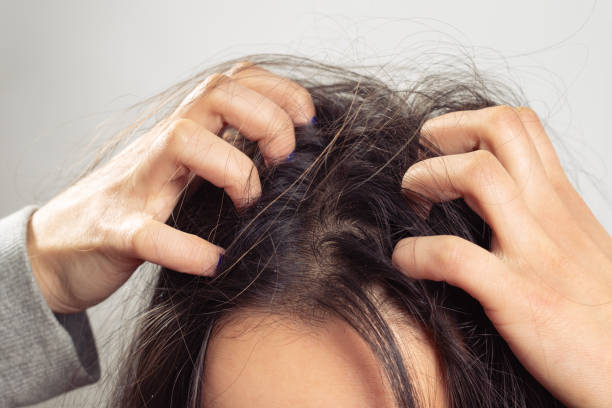
By exploring the probable causes of scalp itchiness, we can see the way to prevention and treatment. In this article, we shall explore six common reasons for scalp itching, including their physiological basis and advice on how to deal with them. Ok, let’s get started and demystify the causes of scalp itchiness so that you can finally get a grip on your scalp health.
Dandruff
Dandruff is possibly the most widespread reason for the itchiness of the scalp. It is manifested by the shedding of dead skin cells from the scalp, usually associated with itching and redness.
Though the actual cause of dandruff is still elusive, it is thought to be linked to a number of factors: the overgrowth of the yeast-like fungus Malassezia, increased oil secretion, and individual inclination to skin sensitivity.
Although dandruff is mainly known for flaking and itching, it can also appear in different forms, ranging from mild to extreme. In some cases, dandruff is also accompanied by symptoms like tender scalp, yellow or dry crusty scales, and even hair fall.
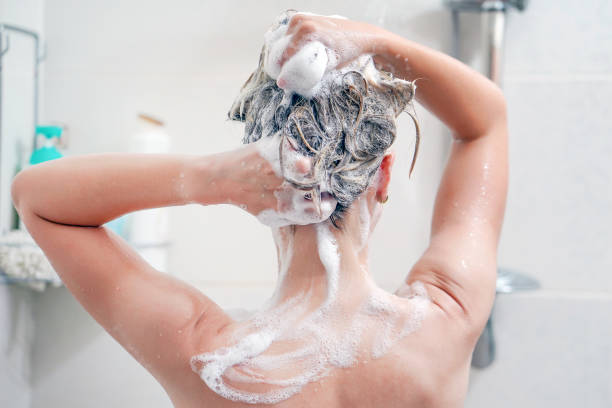
The degree of severity and continuity of dandruff symptoms may vary from person to person, ranging from intermittent flare-ups to chronic cases. By knowing the mechanisms underlying dandruff, treatment of this common scalp condition can be approached more effectively, targeting the symptoms and causes as well.
To combat dandruff, proper scalp hygiene should be observed. Use a mild Eczema scalp shampoo formulated for dandruff treatment and wash your scalp often to get rid of excess oil and dead skin cells. Also, adding ingredients like tea tree oil or salicylic acid to your hair care routine will kill fungi and eventually alleviate itching.
If over-the-counter treatments don’t work, see a dermatologist to get prescription-strength products that are personalized to your needs.
Dry Scalp
Itching is often associated with dry scalp, especially during the fall and winter or in dry climates. If the scalp does not have enough moisture, it can become dry, flaky, and itchy.
Many factors can cause dry scalp, such as harsh hair products, frequent washing, and environmental conditions. It is essential to deal with dry scalp through hydration and gentle care.
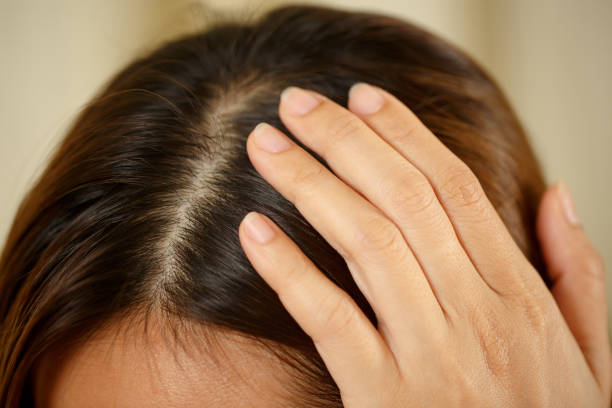
Choose moisturizing shampoo and conditioner with coconut oil, shea butter, and glycerin as the main ingredients to replenish the lost moisture.
Limit the use of hot water and harsh styling products that can strip the scalp of its natural oils. Moreover, think of adding scalp massages to your schedule because they improve blood flow and promote oil production, which in turn relieves dryness and itchiness.
Seborrheic Dermatitis
Seborrheic dermatitis is a complex chronic inflammatory skin condition that significantly affects the quality of life for those who have it. It occurs in the form of redness, itching, and flaking that mainly affects skin areas rich in sebaceous glands. These include the scalp, face, and chest.
The etiology of seborrheic dermatitis is still under research by scientists, and they postulate that it results from a mixture of genetic predisposition, environmental triggers, and microbial factors.
Managing seborrheic dermatitis requires a multifactorial approach. Medicated shampoos containing ingredients like Ketoconazole, selenium sulfide, or coal tar can minimize inflammation and itching.
Psoriasis
Psoriasis is an autoimmune disorder characterized by rapid turnover of skin cells, leading to the subsequent development of scaly patches that may itch or become red and hot. While psoriasis affects any body part, scalp psoriasis is characterized by red patches and silvery-covered raised patches on the scalp.
Treating scalp psoriasis involves the use of topical treatments and lifestyle modifications. Shampoos with coal tar, salicylic acid, and medicated corticosteroids can be applied to help reduce inflammation and scaling. Moisturizing the skin can reduce dryness and itch, which are symptoms of psoriasis.
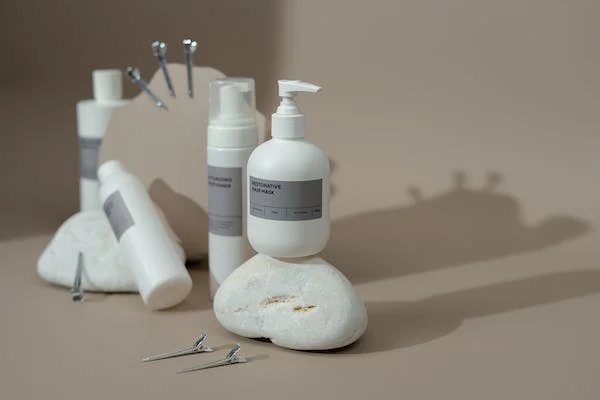
Allergic Reactions
Hair care products or environmental allergens can also cause allergic reactions that result in itching of the scalp. The skin may be irritated due to chemicals like sulfates, fragrances, and preservatives, which are commonly found in shampoos, conditioners, and hair styling products. This can cause redness, itching, and inflammation.
In case you think the symptoms are due to an allergic reaction, it is highly recommended that you identify and avoid the offending ingredient. Switch to hypoallergenic or fragrance-free hair care products and see how your scalp will respond to them.
Parasitic Infestations
Parasitic infestations like lice or scabies may cause an intense itch in the scalp as well as visible signs like red bumps and little white nits along the hair shafts. These parasites are transmitted through close physical contact with infected persons or contaminated objects and are more prevalent among children and in overcrowded areas.
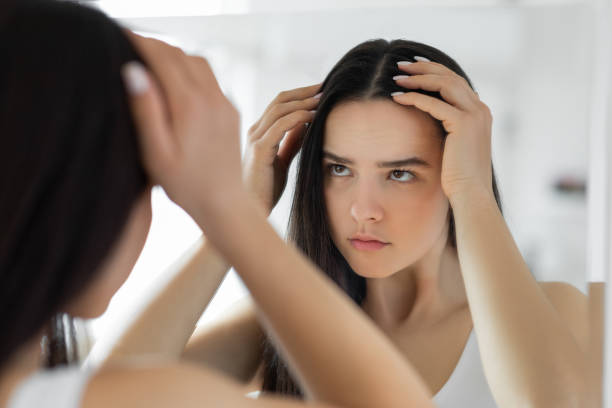
To cure parasitic infections, you have to thoroughly eradicate the parasites and their eggs. Over-the-counter or prescribed medicated shampoos containing permethrin or pyrethrin as active ingredients are usually used to eliminate lice or scabies.
Conclusion
The causes of an itchy scalp range from benign, like dandruff and dry scalp, to more serious ones, like psoriasis or parasitic infestations. By understanding the fundamental cause of your scalp itching, you will be able to take preventive measures and improve the state of your scalp health.
Whether it is through the right personal hygiene, directed treatments, or lifestyle adjustments, the right approach to scalp itchiness can help you regain comfort and confidence.
In case the symptoms don’t disappear or even get worse with self-care measures, do not be afraid to seek help from a medical professional.
Related Categories
Business
Clothing & Apparel
Digital Marketing
Education
Electronics
Entertainment
Events
Fashion
Finance & Insurance
Flowers & Gifts
Food & Beverage
Games & Toys
Health & Beauty
Home and Garden
Jewelry and Watches
Occasions
Pet
Services
Shopping
Sports And Outdoors
Technology
Telecommunications
Travel
Uncategorized
Women's Clothing



